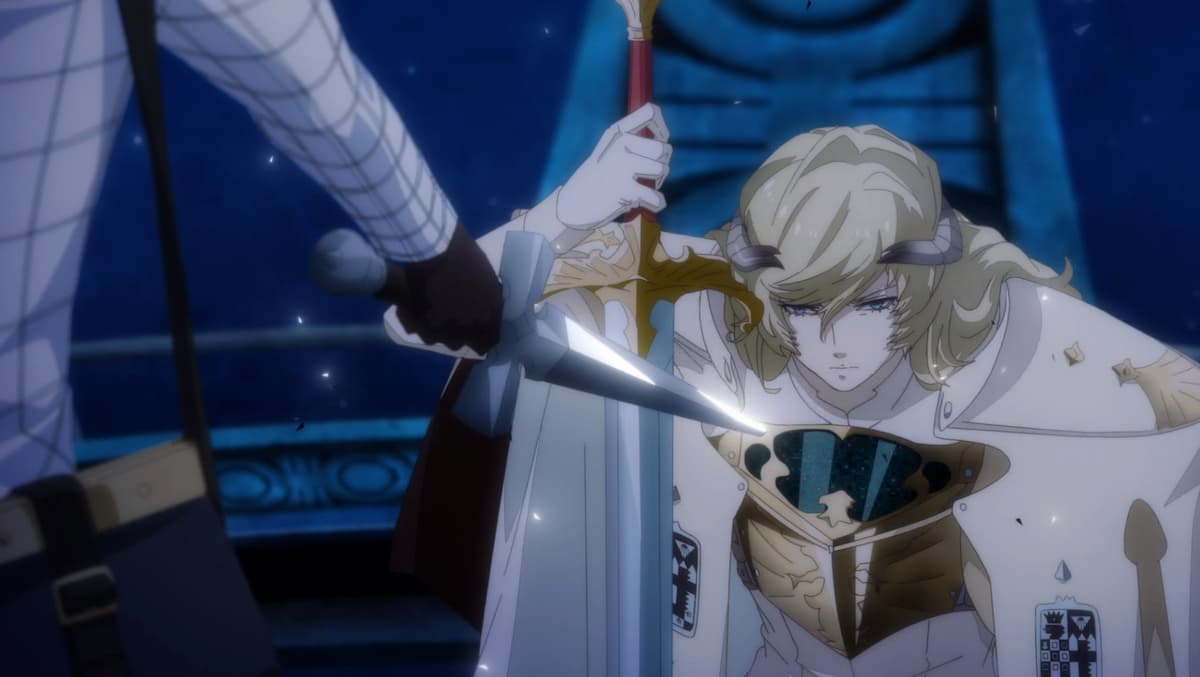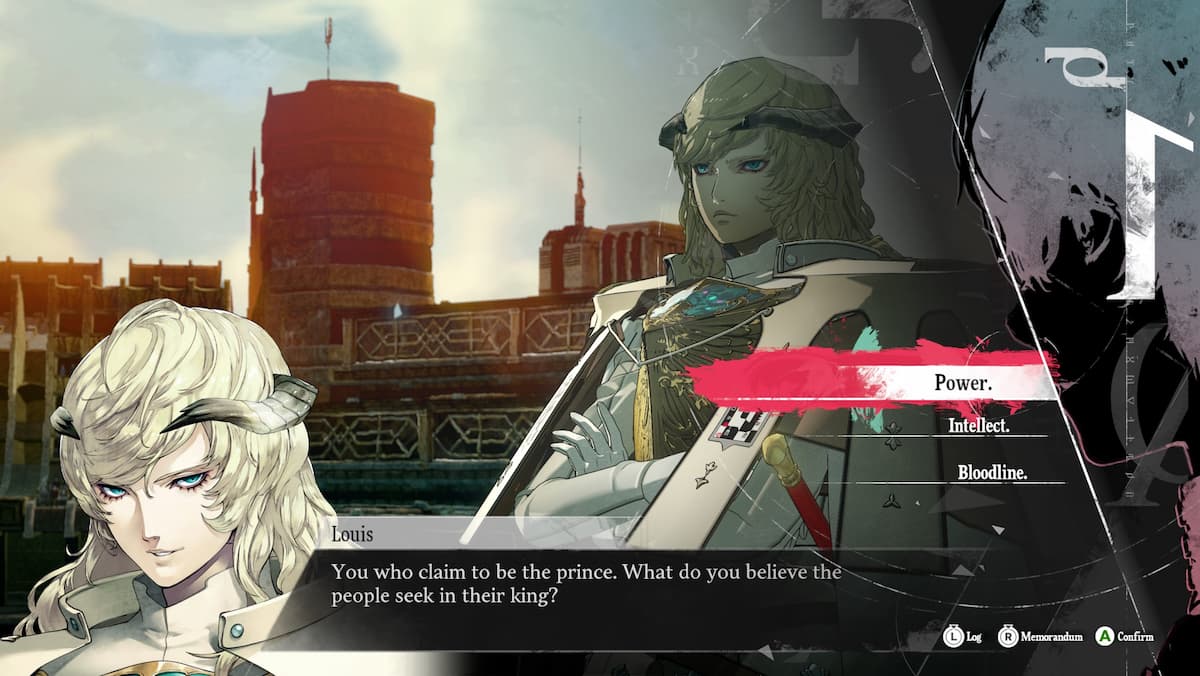This article contains major spoilers for the main story of Metaphor: ReFantazio.
Metaphor: ReFantazio is unlike anything we’ve seen from Atlus. While its writing leaves a little to be desired in some aspects, it doesn’t shy away from its commentary on rampant racism and class divide. The protagonist and his party are the driving forces of justice and equality in Euchronia, but really, no one embodies the game’s themes better than its antagonist, Louis.
From the start, Metaphor: ReFantazio wastes no time in introducing its central antagonist. Louis is the charming villain who’s kicked off the events of the entire game by killing the King, and his intentions are made clear: he wants to take the throne to show the people of Euchronia that tribal lines will be no more. Only power matters. It doesn’t take long for him to win over the people, as he’s often portrayed as the cooler, more progressive leader than the boring Sanctists and their Church.
By doing this, Metaphor: ReFantazio‘s story immediately feels a lot more focused than Atlus’ other games. Personas 3 and 5, in particular, tend to meander for the majority of the game before your true goal comes into focus, while the Shin Megami Tensei games are often too light on the story elements or too nebulous for you to really determine what your endgame should look like.

It definitely helps that Louis is actually really well-written, too. There’s a segment in the game where you get to infiltrate his gauntlet runner in an attempt to find more information about the curse he’s inflicted on the Prince, and it’s here that you start to get a sense of what kind of person he is. Louis is smart and calculative, and he’s always a step ahead of everyone, making him a very dangerous and even scary enemy to have. In fact, even as the party plots against him, you can never quite shake this feeling that Louis probably already knows what you’re up to and doesn’t care. He just wants to see how far you can go.
He’s callous, as shown in his conversation with Strohl when he reveals that he was the one who razed Strohl’s town to the ground when it was overrun by humans. How else would he be able to get the rest of the world to see what a threat the humans are, he asks.
There’s so much more to Louis than just the cold, badass villain who talks down to everyone, though. As the story progresses, you eventually learn that he and the Captain have been reading the same fairytale novel this entire time. And yet, it’s clear that they’ve both drawn very different lessons from the same book.
Whereas the Captain believes in the power of fantasy and hopes to bring his will alive, Louis refuses to entertain such thoughts. They’re two sides of the same coin, with one being far more idealistic, while the other is more realistic and nihilistic. It’s eventually revealed that, just like the Captain, Louis is also part of the shunned Eldan tribe. While he was much more optimistic and hopeful as a boy, he quickly became disillusioned with the King when even he could not stop the Ancient Eldan Sanctum from getting burned down. From that point on, Louis was resolved to take matters into his own hands and claim the throne for himself.

But Louis isn’t motivated by revenge. His ultimate vision for the world is twisted, as he believes that the only way to have true equality in Euchronia is by forcing a species evolution of sorts. By releasing the people’s pent-up anxiety that’s been stored in the King’s scepter for years and returning it to them, Louis hopes to force the people to either show that they have the power and fortitude to adapt or die. At the end of the day, you can kind of see where Louis is coming from, and perhaps even empathize with him a little. At the same time, his methods are so extreme and cruel that you can never truly root for him, and that’s what makes him such a compelling villain.
Bringing all of these elements to life is Louis’ voice actor, Joseph Tweedale, who gives the character such a charismatic air about him. Truly, Louis commands virtually every scene he’s in thanks to Tweedale’s intimidating and awe-inspiring performance, making him easily one of, if not the best villains I’ve ever seen in an Atlus game.
All in all, Louis is basically everything you could hope for in a classic fantasy villain. Tragic backstory? Check. Cool character design? Check. Rizz beyond all worldly comprehension? A hundred times check. Whether Metaphor: ReFantazio‘s narrative works for you, there’s just no denying that Louis is easily the standout star of the game.
Metaphor: ReFantazio is now available on PlayStation, Xbox, and PC.






Published: Oct 17, 2024 09:26 am